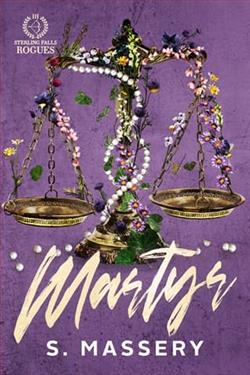Page 114 of How to Walk Away
If the expression on Myles’s face had been a sound, it would have been a whimper. He was in over his head, and he knew it. He knew Iancould crush him—and he also knew he’d just made certain that Ian had little to lose.
Myles opened his palm in a gesture of defeat. “Okay,” he said.
Ian released his grip. They both stepped back.
Then Ian took a few more steps backward, and I realized he was leaving.
He looked around the room, taking it in for the last time.
Then he turned to me, and said, “Maggie!”
Though my eyes, and everybody else’s, were already on him.
Don’t say good-bye,I found myself thinking.Don’t say good-bye.
He looked right at me, gave me a nod, and then said, “Happy Valentine’s Day.”
Twenty-three
THE NEXT DAYbrought a few beginnings—but mostly endings.
It was the day Kitty was leaving for New York, and the day I was leaving the hospital. The plan was for my parents to arrive late morning, and for my dad to drive Kit to the airport while my mom stayed with me to help pack up. As we waited, I tried very hard not to mope.
“I can’t believe you’re leaving me alone with them.”
Kit wasn’t having it. “Just in the nick of time,” she said. “It’s a miracle we got through this whole month unscathed.”
She wasn’t wrong.
Though some of us were less scathed than others.
When her suitcase was zipped and sitting by the door, she said, “Now can I please tell you the comforting thing I’ve been wanting to tell you?”
“You can tell me,” I said. “But I won’t promise to find it comforting.”
“Ifind it comforting,” Kit said. “That’s enough.”
“Spit it out, then.”
“So I saw this TED Talk, and it was this researcher from Harvard—”She paused. “Or was it Stanford? Actually, I think it was MIT. Anyway, a total brainiac—”
“You’ve lost me already. Just know that.”
She pushed on. “He researches mathematical probabilities or something, and in his talk, he mentioned that people have, like, a set point for happiness.”
“How does that relate at all to mathematical probabilities?”
“The point is, he had these great statistics. People who win the lottery, when you check in with them a year later, you’d think they’d be super happy, right?”
She wanted me to say it. “Right,” I said.
“But they’re not happy. They’re just as miserable as they were before.”
I tilted my head. “Were they miserable before?”
“And people,” she went on, “who have terrible things happen to them—loss of a spouse, bankruptcy, disfiguring accidents—”
“That would be me?”















